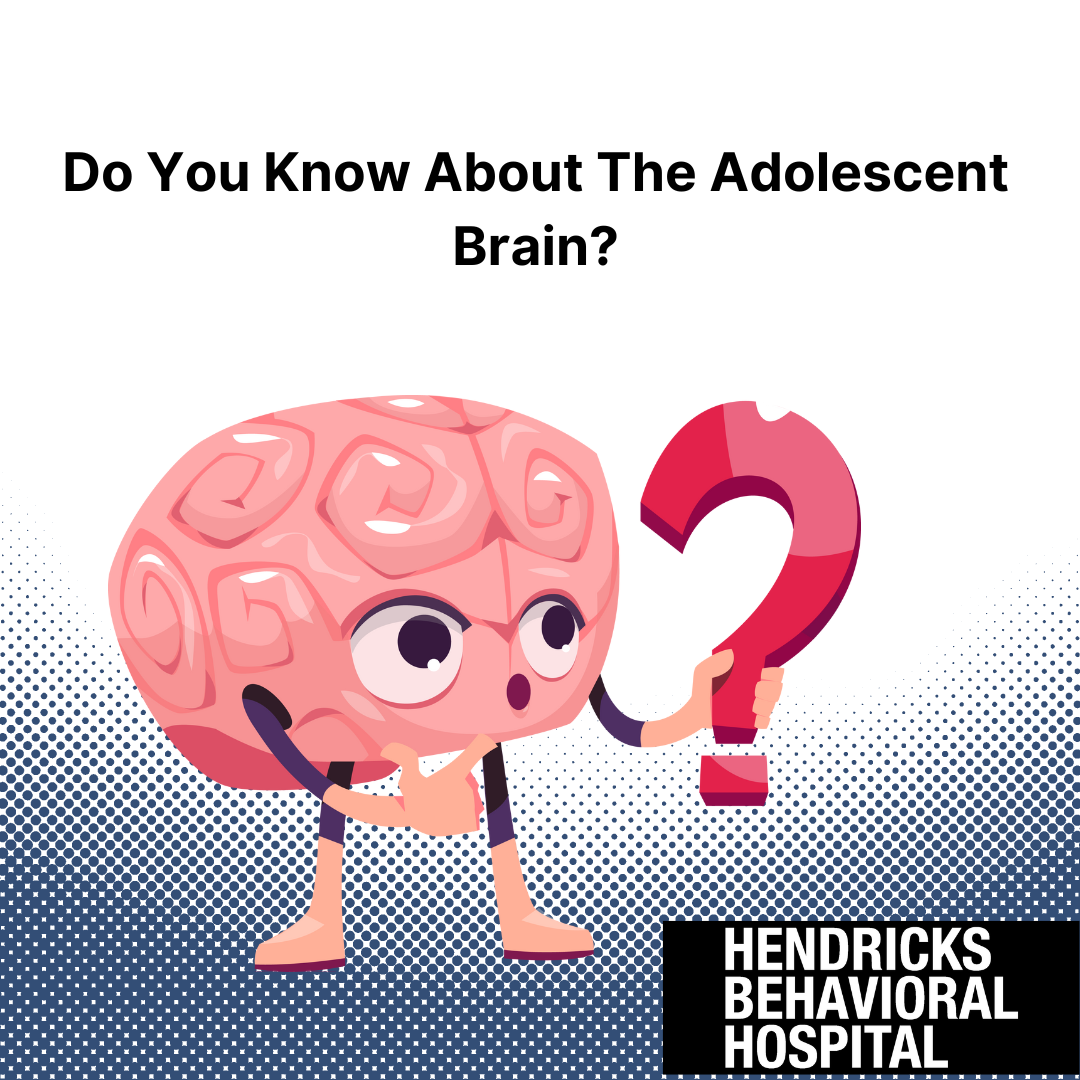
Adolescent brain development plays a crucial role in shaping mental health outcomes. During adolescence, the brain undergoes significant changes, particularly in areas responsible for decision-making, impulse control, emotion regulation, and social interactions. Hendricks Behavioral Hospital serves adolescents through various levels of care and programming, including Acute Inpatient Stabilization, Intensive Outpatient Program, and our Strive Day Program.
1. Prefrontal Cortex Development: The prefrontal cortex, responsible for executive functions like decision-making and impulse control, undergoes substantial development during adolescence. This development continues into early adulthood. As a result, adolescents may struggle with making sound decisions and controlling impulses, which can impact their mental health.
2. Limbic System Changes: The limbic system, which regulates emotions, also undergoes development during adolescence. This can lead to heightened emotional responses and increased vulnerability to stressors, contributing to mental health challenges, such as mood disorders.
3. Social and Environmental Factors: Adolescents are highly sensitive to social and environmental influences, which can shape their brain development and mental health outcomes. Peer relationships, family dynamics, school environments, and societal expectations all play significant roles.
4. Risk-taking Behavior: As the brain’s reward system develops, adolescents may be more inclined to engage in risky behaviors, such as substance abuse, unsafe sexual practices, or reckless driving. These behaviors can have profound implications for mental health and well-being.
5. Mental Health Disorders: Adolescence is a critical period for the onset of mental health disorders, such as depression, anxiety, and eating disorders. The interplay between genetic predispositions, brain development, and environmental factors can contribute to the emergence of these disorders during this time.
6. Resilience and Intervention: While adolescence is a period of vulnerability, it is also a time of significant neuroplasticity, allowing for interventions and support to promote positive mental health outcomes. Early intervention, supportive relationships, and access to mental health resources are critical in fostering resilience and well-being during this period.
Understanding the complex interplay between adolescent brain development and mental health is essential for developing effective prevention and intervention strategies to support adolescent well-being. It highlights the importance of early detection, support networks, and creating environments that promote positive developmental outcomes.
If you know an adolescent who may need our adolescent programs, contact us today! If in crisis, please come directly to our facility at 1051 Southfield Drive, Plainfield, Indiana, for a free level of care assessment with our Intake Team. If you are interested in outpatient programming, call our IOP Department directly during business hours at 317-406-8626 or call 24/7/365 at 844-991-9900. Your journey to healing and happiness starts at Hendricks.
